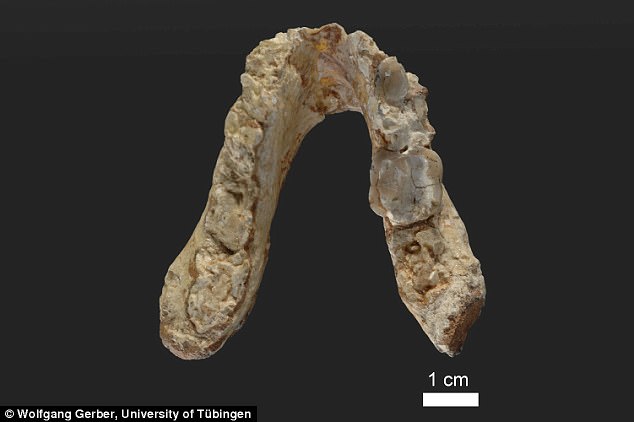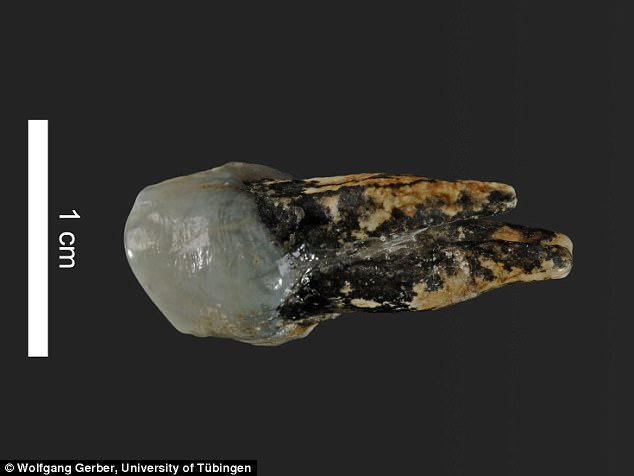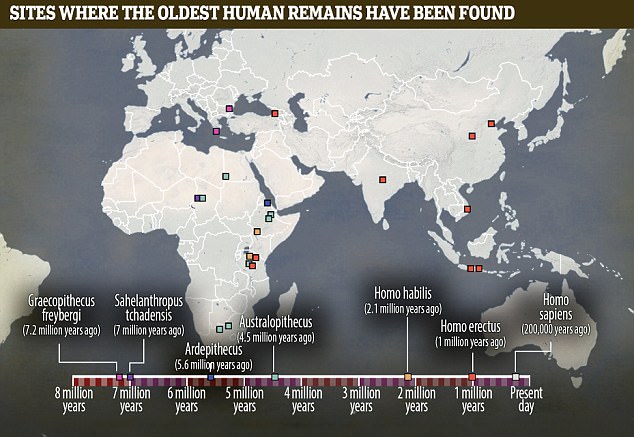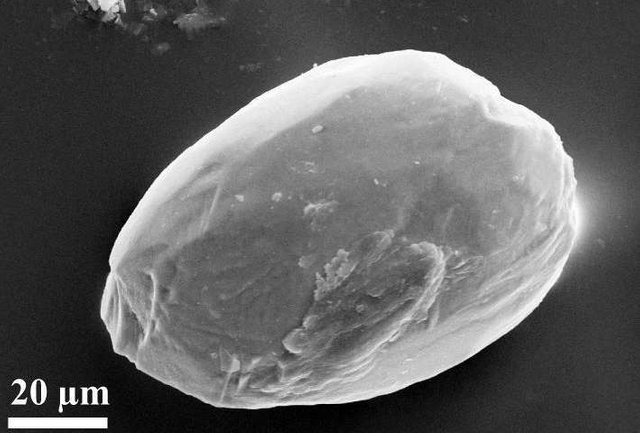DID HUMANS REALLY COME FROM AFRICA??? New studies suggests we might be rewriting history once again!!!!
 The lower jaw of the 7.175 million year old Graecopithecus freybergi (El Graeco) from Pyrgos Vassilissis, Greece (today in metropolitan Athens). Photo: Wolfgang Gerber, University of Tuebingen.
The lower jaw of the 7.175 million year old Graecopithecus freybergi (El Graeco) from Pyrgos Vassilissis, Greece (today in metropolitan Athens). Photo: Wolfgang Gerber, University of Tuebingen.
For the longest time it was believed that around 200,000 years ago homosapiens from east Africa split from apelike ancestors. The oldest known of those apelike ancestors were sahelanthropus skeletal remains found in Chad 6 to 7 million years ago, but in 1944 the above picture I posted was found in Greece and nicknamed (El Graeco) dating back to 7.24 million years ago , fast forwarding to 2009 a uppermolar was found in Bulgaria, dating back to 7.175 million years ago.  The team analyzed the two known specimens of the fossil hominid Graecopithecus freybergi: a lower jaw from Greece and an upper premolar from Bulgaria.
The team analyzed the two known specimens of the fossil hominid Graecopithecus freybergi: a lower jaw from Greece and an upper premolar from Bulgaria.
They used computer tomography to visualize the internal structures of the fossils and demonstrated that the roots of premolars are widely fused.
“While great apes typically have two or three separate and diverging roots, the roots of Graecopithecus converge and are partially fused – a feature that is characteristic of modern humans, early humans and several pre-humans including Ardipithecus and Australopithecus“, Prof. Madelaine Boehme from the University of Tuebingen has said.In-depth research by an international team of scholars of two roughly 7.2-million-old pre-human fossils discovered in Bulgaria and Greece demonstrates that the split of the human lineage occurred in the Balkans, and not in Africa, as conventionally thought.
The research team includes scholars from Germany, Bulgaria, Greece, Canada, France and Australia.
It is headed by Professor Madelaine Boehme from the Senckenberg Center for Human Evolution and Palaeoenvironment at the University of Tuebingen and Professor Nikolai Spassov from the Bulgarian Academy of Sciences, who is the Director of the National Museum of Natural History in Sofia.
The team’s research has now outlined a new scenario for the beginning of human history by demonstrating that the common lineage of great apes and humans has split several hundred thousand years earlier than hitherto assumed.
The researchers have reached their conclusions based on the study of two fossils of Graecopithecus freybergi –

 An electron microscope image of a dust particle rounded by eolian transport. It originated in the Sahara desert and was found in 7.2 million year old sediments in Greece. Photo: Ulf Linnemann, Senckenberg Center for Human Evolution and Palaeoenvironment, University of Tuebingen.
An electron microscope image of a dust particle rounded by eolian transport. It originated in the Sahara desert and was found in 7.2 million year old sediments in Greece. Photo: Ulf Linnemann, Senckenberg Center for Human Evolution and Palaeoenvironment, University of Tuebingen.
The researchers have further showed that, contemporary to the development of the Sahara in North Africa, a savannah biome formed in Europe.
They have studied microscopic fragments of charcoal and plant silicate particles, called phytoliths, and many of the identified phytoliths derive from grasses and particularly from those that use the metabolic pathway of C4-photosynthesis, which is common in today’s tropical grasslands and savannahs.
It is pointed out that the global spread of C4-grasses began 8 million years ago on the Indian subcontinent, and their presence in Europe had been previously unknown.
“The phytolith record provides evidence of severe droughts, and the charcoal analysis indicates recurring vegetation fires,” explains Boehme.
“In summary, we reconstruct a savannah, which fits with the giraffes, gazelles, antelopes, and rhinoceroses that were found together with Graecopithecus,” Prof. Nikolai Spassov has added, referring to rich deposits of prehistoric mammal fossils discovered in Bulgaria and elsewhere in the Balkan Peninsula.
“The incipient formation of a desert in North Africa more than seven million years ago and the spread of savannahs in Southern Europe may have played a central role in the splitting of the human and chimpanzee lineages,” Boehme has elaborated
She calls this hypothesis the North Side Story, recalling the thesis of Yves Coppens, known as East Side Story.
‘Egocentric Species’
The Director of Bulgaria’s National Museum of Natural History, Professor Nikolai Spassov, one of the two leaders of the international research team, has provided at a public presentation in Sofia further details about the revolutionary discovery that the first pre-humans developed in Southeast Europe, rather than in Africa.
“We humans are egocentric, and deem that the history of our species is much more interesting than that of any other ancient species. One of the most important questions that paleoanthropology tries to answer is when the human lineage split from that of the chimpanzee and where," he has said, emphasizing the answer discovered by his team,
“Humans’ evolutionary lineage emerged in the Eastern Mediterranean a little over 7 million years ago… Today we have grounds to connect this evolution with a ‘North Side Story’."
Spassov has indicated out that one of the possible new questions posed by his team’s discovery might have to do with how the pre-humans that evolved in the Balkans, i.e. Southeast Europe, later migrated to Africa.
The international research team headed by Spassov and Boehme is set to carry out excavations in the area known as Azmaka near Bulgaria’s Chirpan to search for more fossils from Graecopithecus freybergi, the earliest known pre-human.
Their conclusions will be presented at a science conference in Athens in early September. Further excavations are also planned to take in Greece as well as in other Balkan countries, including the Former Yugoslav Republic of Macedonia which is known to harbor a deposit of fossils of the same age as the ones found in Greece and Bulgaria.
Great information. New one for the history books.
Don't forget this study aswell (is a bit older) http://bit.ly/1e1EYJv